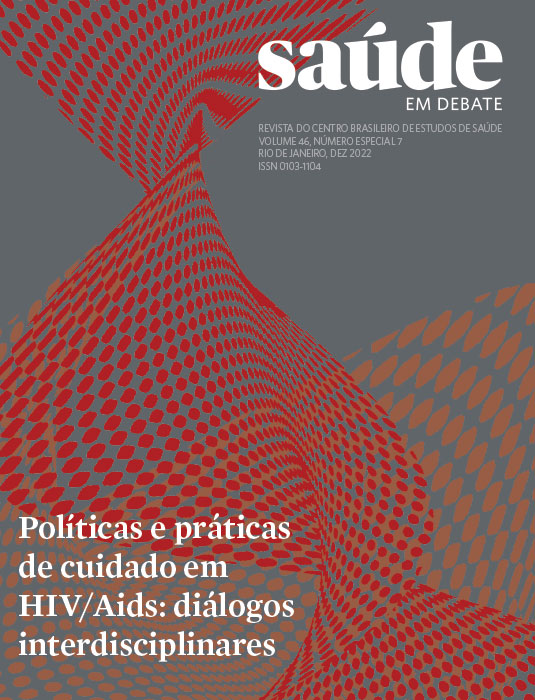‘Travesti sisterhood is our cure’: sisterhood among travestis e and transgender women in accessing health care and HIV prevention
Keywords:
Disease prevention, HIV, Acquired Immunodeficiency Syndrome, Transgender persons, TravestiAbstract
Several studies describe the conditions of social vulnerability of transgender people and their experiences of discrimination in health services. Such situations make it difficult for this population to access health promotion and care and, in the particular case of AIDS, result in low adherence to prevention and treatment. This article discusses the strategies for accessing public health services and HIV prevention developed by travestis and transgender women in the Metropolitan Region of Rio de Janeiro. The reflection is based on two studies, one on HIV testing and the other on the use of biomedical prevention technologies (PrEP, PEP). The findings, resulting from participant observation and interviews, indicate that the production of health care for this group is built from a certain political solidarity, here called sisterhood, which mediates the relationship of travestis and transgender women with the territory, the devices of health, and the
experience with HIV/AIDS. Such data suggest the importance of health policies considering the conditions of
vulnerability of trans people, the demands concerning: autonomy and self-determination in the production of health; legitimation of their forms of subjectivation and self-care; specificity of the relationship between peers.
Downloads
Published
How to Cite
Issue
Section
License
Copyright (c) 2023 Saúde em Debate

This work is licensed under a Creative Commons Attribution 4.0 International License.




















